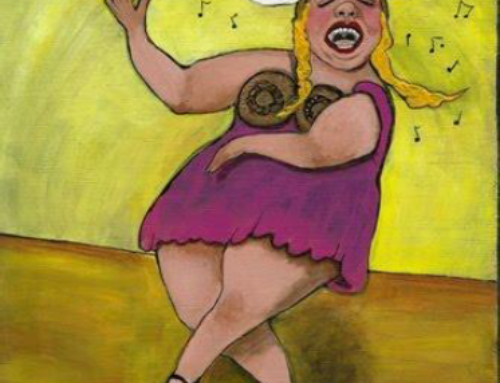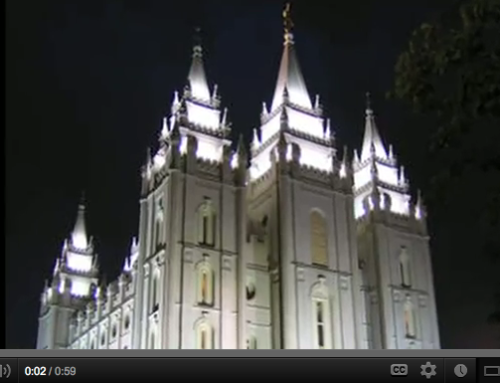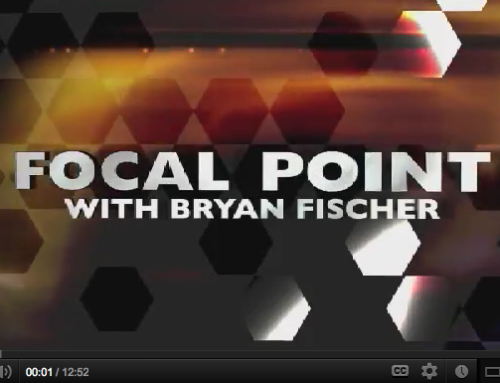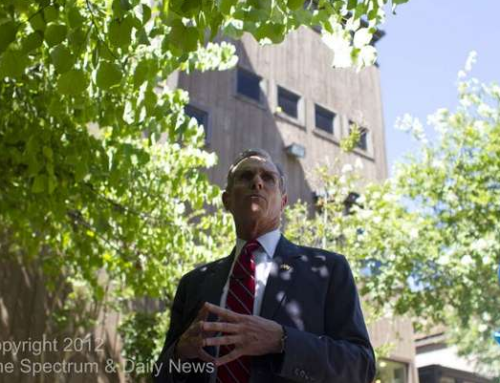
Fred Karger hits the campaign trail
By Greg Lucas, 5/26/11, 12:00am PST
For link to story, Click Here
It’s May 23 and GOP presidential candidate Fred Karger is heading to the American Israel Public Affairs Committee gala in Washington, D.C. The cell phone reception is somewhere between gargling and an alien telling Captain Kirk and the crew of the Enterprise they’re doomed. Karger finds a spot where the reception improves.
Earlier this month, Karger – the first Jewish Republican to run for president – visited Israel and was profiled in the Jerusalem Post. A few days later, he appeared on the BBC’s “HARDtalk.”
While in Tel Aviv, Karger, 61, met with leaders of the nation’s gay, lesbian, bisexual and transgender community, one of Karger’s press releases says.
It would be surprising if he didn’t meet with them since Karger is the first openly gay GOP candidate for president.
“I want to change the dialogue. I want to calm down the anti-gay rhetoric. I want to open up the party not just for LGBT but everyone,” Karger said in an interview with Capitol Weekly. “If he starts a frank conversation about qualifications as opposed to orientation then he’ll have moved the ball forward,” said Roger Salazar, a Sacramento political consultant. “And that will make it easier for the next candidate.”
At 14 trips since February 2010 when his campaign started, Karger has probably spent more time in New Hampshire than any other candidate.
In April, he bested former Massachusetts governor Mitt Romney in a Saint Anselm College Republican Straw Poll by five votes, leading the field 25 percent to Romney’s 23 percent. The result might be partly explained by Karger’s targeting of 18-to-29 year-old voters.
Much of Karger’s effort seems to be getting the GOP to take him seriously and to give him equal treatment.
Like not being included in debates. Or in polls.
“I’m batting about 500 in that regard,” he says, although he was in a recent New York Times poll that showed Romney with a 17.6 percent polling average compared to Karger’s .1 percent. Karger had 10 percent name recognition compared to Romney’s 83 percent.
“There’s three tiers of candidates in the race,” says Karger, who has never held elective office. “There’s the first tier, which keeps shrinking. The second tier, which I’m in, and the third tier of another 100 Republicans who no one has heard of which is where I started.”
When former Arkansas governor Mike Huckabee – in the first tier – dropped out of the race, Karger had this comment: “There is one less candidate in the GOP presidential race. I am thrilled. I know Mike Huckabee is supposed to be a nice guy but his hateful words about the LGBT community will now be confined to his weekly show on Fox News.”
Born in Glencoe, Ill., Karger came to California ostensibly to become an actor. Instead, in 1977, he became a political consultant for Republican campaigns and business clients, like Philip Morris. He was closeted until becoming a gay activist in 2004 after his retirement at the Los Angeles based Dolphin Group which was founded by the late Bill Roberts who, along with Stu Spencer, ran Ronald Reagan’s successful 1966 race for governor.
Karger’s profile as an activist was elevated during the 2008 campaign against Proposition 8, which repealed a California Supreme Court ruling allowing same-sex marriages.
Californians Against Hate, a group Karger founded, launched four well-publicized boycotts of major donors to the “yes” campaign. Two donors, Bolthouse Farms and Garff Automotive, agreed to donate to gay and lesbian groups to end the boycotts.
Karger has particular antipathy toward the Mormon church and its opposition to same-sex marriage. When filing his papers last fall making his candidacy official, Karger described himself as the “anti-Romney candidate.” Romney is Mormon.
The skills Karger learned in public affairs and politics are evident in the conduct of his campaign. His apt but memorable campaign theme is “Fred Who?”
There’s a steady stream of emailed press releases, videos on YouTube and a growing amount of media attention.
Karger ran a television ad in New Hampshire and one in Iowa. Each for one week.
In a letter – circulated to the media – complaining to the Conservative Political Action Conference about being denied a speaking invitation, an exhibit booth or being included in the group’s candidate straw poll, Karger notes that he was recently profiled by the Washington Post, the first of any prospective 2012 GOP candidates.
He also says in the letter that he was the first candidate to establish an exploratory committee.
It seems doubtful Karger harbors any illusions that he will be behind the desk in the Oval Office come January 2013.
But he campaigns like he does. Glad-handing and handing out Frisbees like nobody’s business.
A swing through Iowa and Texas from April 25 through May 1 includes a radio show in Des Moines followed by a meet-and-greet at Iowa State in Ames. The following day it’s Drake University and on to Cedar Rapids and the next day back to Des Moines for more interviews and another meet-and-greet.
Then from Des Moines it’s three days in Dallas for the convention of Log Cabin Republicans, a national gay and lesbian GOP grassroots group.
At his appearances, Karger – a former actor like his “mentor” Ronald Reagan – is affable and cheery, looking a bit professorial in his tortoise shell glasses.
“I generally tell my story which is fairly compelling and unique having worked in Republican politics for years and being gay but always in the closet.”
He says his most exciting moment was a day at the Iowa State Fair last August.
“I spent the day in front of the Republican both handing out Frisbees and meeting people. It’s what I love – shaking hands and being out there.” Other than marriage equality his platform is, at the moment, a bit skimpy.
The most tangible proposal is a 28th Amendment to the U.S. Constitution lowering the voting age from 18 to allow 16-and 17-year-olds to vote. “That would do two things. One is give younger people – who are more informed and knowledgeable than I was because of the Internet – give them an opportunity to participate,” Karger says.
“And if 16-and 17-year-olds were allowed to learn about campaigns as they happen as opposed to campaigns from 100 years before, some might be more interested and less apt to drop out of high school.”
Now Karger is busy trying to raise more money. He’s spending half of his time in New Hampshire and looking for a house to rent so he can maximize his time there through the primary next February. Then on to Iowa.
“It’s an uphill battle but it’s going amazingly well.”



